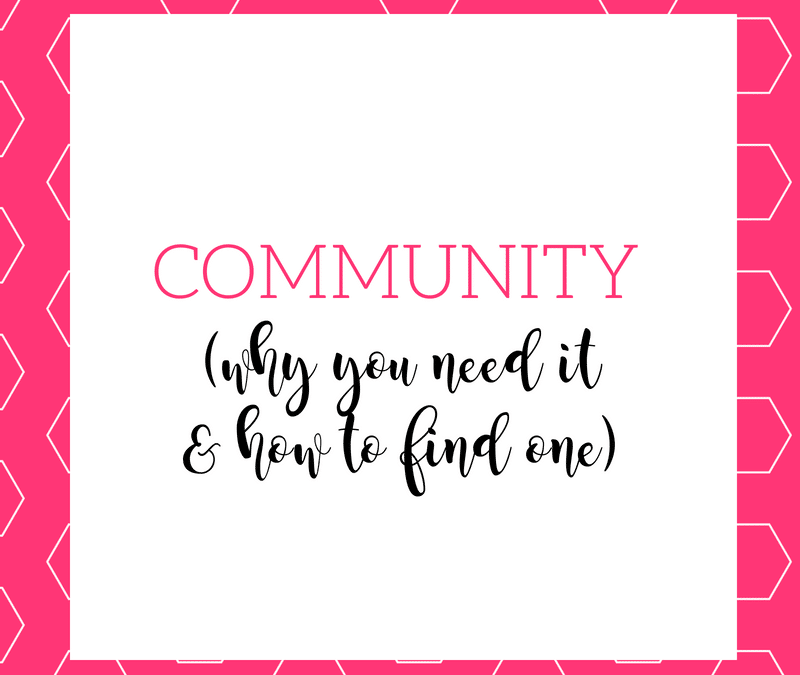Being self-employed means you’re responsible for everything in your business, even the mind-numbing stuff you dread. Some days you feel you’ll never make another penny, and others you’re so busy there’s no time to pee. Without a support system in the form of a business community, running a business can feel nearly impossible at times.
Trying to “go it alone” probably contributes to this scary statistic: 30% of new businesses fail in the first two years (50% in the first 5 years). It’s easier to call it quits when times are hard if no one is encouraging you to keep going. That’s why terms like biz bestie, mastermind, and community are so trendy.
For a long time, my only support system was my dogs. They were sweet, but they didn’t quite understand my complaints about overdue invoices, complicated tax filings, and soul-sucking projects. Then about 3 years ago, life handed me some nasty lemons, and I knew I needed help turning them into lemonade.
That’s when I started my first mastermind group, which met in person every week for more than two years. That was the same time I discovered business-focused Facebook groups, and also when I started having regular virtual coffee chats to expand my network.
Creating a business community in these ways saved me from burnout in my business, rescued me from possible depression, and helped me pivot my business (I wouldn’t be living my dream as a business coach now if not for everyone else’s help).
I believe so strongly in business community that I created my own for women business owners (join the free group or learn about the paid membership). I encourage all my clients to find their communities whether it’s one biz bestie, a local networking group, a virtual mastermind, a group coaching program, or a paid membership.
Find a Business Community
It can be hard to find a space that feels right. One where people get you, they’re kind, they listen without judgment, and they make you feel better about business, life, and yourself.
Here are four ways you can find a peer community that suits you:
- Ask for recommendations. The best way to find a community is to ask your friends and business associates. Which communities are they in or have they been part of in the past? Which ones are amazing? Which aren’t? Make sure you ask for specifics about what they did or didn’t love about a community because you may not have the exact same needs.
- Follow the leader. Who are the authorities you admire? Whose work do you love? Whose messages deeply resonate with you? Do these people have communities? If so, follow them for a while. If your values and personalities mesh well, there’s a good chance you’ll enjoy their groups.
- Follow the members. If you hear about a community but don’t personally know anyone in it, how do you decide whether it’s a good fit? One way is to look at the membership and follow a handful of them for a while. Again, if your values and personalities seem similar, there’s a decent chance you’ll like the group.
- Take a risk. Sometimes you just have to gamble and join a group to see if it’s a fit. In these cases, make sure there’s an option to join on a short-term basis (like month-to-month) so you’re not giving a long-term (like a year) financial or time commitment to something that may not work out.
The Right Business Community
Whether you join the local Chamber of Commerce, pay to be in a membership community like mine, find one great biz bestie, or start your own mastermind group, here are 7 ways to know you’ve found the right support system…
- You’re not a unicorn. Diversity is incredibly valuable in a business community, and you’ll want to find a space that provides it. That said, you also don’t want to always feel like the odd-person out, like no one else “gets” you or your business. The right space will make you feel understood by people who do what you do or at least understand it and believe it’s valuable.
- You don’t feel judged. A support system should do just that—provide support. It should never leave you feeling less than, unheard, or devalued. The goal is to find people who lift you up, not look down on you. (And run for the hills if ever you get “advice” that’s really just someone else talking about how much better they are than you.)
- You share values. You and your community should be somewhat aligned in the big, important ways. You don’t necessarily need to have the exact same religious or political beliefs, but you must have mutual respect for what matters most in each other’s lives because, well see #2.
- You’re not alone. A community is only as strong as its members. If you’re the only person showing up, then it’s not working and it’s not going to help you. The right community has active and engaged members who participate with enthusiasm.
- You feel safe. Being a business owner is tough. On the days you want to quit or pull out your hair or throw your computer against the wall, you need a place to turn where you can vent and speak your truth without fear. Your community should be there to listen, to commiserate, and to give you a hug.
- You get value. A great support network will help you grow as a business owner. Find a community that challenges you to do better and shares resources to help you learn. Oh, and the members should do so without strings attached, not as part of a pitch to get you to buy something.
- You give value. If you’re in the right community, you’ll give as much as you get. If you’re not lending an ear, answering questions, sharing resources, or in other ways regularly contributing to the other members, you need to find a place where you can.
Are you getting those needs met by your community? If not, it’s time to find one that’s right for you.



